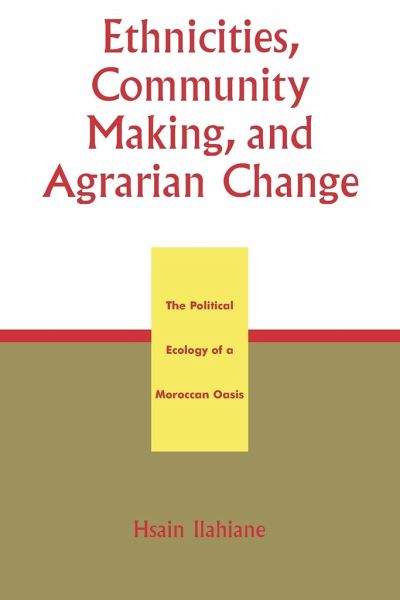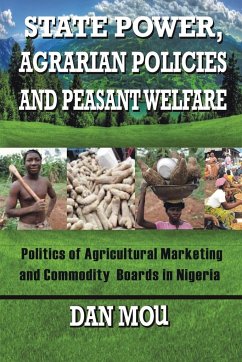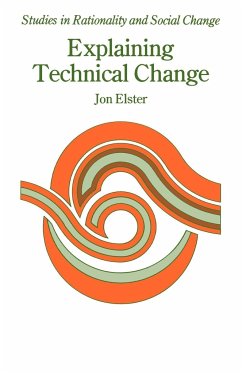
Ethnicities, Community Making, and Agrarian Change
The Political Ecology of a Moroccan Oasis
Versandkostenfrei!
Versandfertig in 1-2 Wochen
69,99 €
inkl. MwSt.

PAYBACK Punkte
35 °P sammeln!
This ethnography studies how, when, and under what circumstances culture change occurs. It is author Hsain Ilahiane's conviction that culture change directly affects resource use and community building processes. This study investigates the relationship between ethnicity and agricultural production at the household level, as well as the result of recent ethnic transformations in the restructuring of patterns of land access and social mobility within ethnically stratified communities. Ilahiane focuses specifically on the intensive farming systems of Morocco's Ziz Oasis, a 250 km long expanse wa...
This ethnography studies how, when, and under what circumstances culture change occurs. It is author Hsain Ilahiane's conviction that culture change directly affects resource use and community building processes. This study investigates the relationship between ethnicity and agricultural production at the household level, as well as the result of recent ethnic transformations in the restructuring of patterns of land access and social mobility within ethnically stratified communities. Ilahiane focuses specifically on the intensive farming systems of Morocco's Ziz Oasis, a 250 km long expanse watered by the Ziz River. Surrounded by Saharan desert, the valley houses a dense, rapidly grown, and ethnically diverse population of Arabs, Berbers, and Haratine (blacks). The author employs a varied body of data collected during fieldwork, including ethnographic accounts, oral histories and colonial archival records, and socio-economic and ecological findings based on a household questionnaire strategy.












